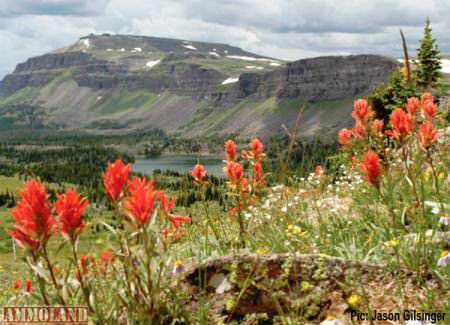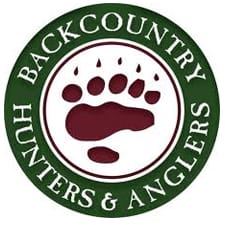By David A. Lien

Joseph, OR –-(Ammoland.com)- As a big game hunter and former Air Force officer who cares deeply about our country and its wild public lands heritage, I’m constantly amazed by the apparent naivety of some who espouse anti-wilderness rhetoric.
Even though hunting, angling, and wildlife watching are enjoyed by some 87.5 million Americans, sometimes we forget that not everyone realizes the importance of our protected public lands.
Recently, the U.S. House of Representatives passed H.R. 4089, the Sportsmen’s Heritage Act. While hunters and anglers support numerous parts of this bill, there are specific details that could result in enormous negative consequences for world-renowned hunting and fishing destinations, conservation, and public lands fish and wildlife habitat.
Included in the Sportsmen’s Heritage Act is specific language that would undermine the proud heritage American sportsmen have been defending for generations:
First, Section 104(e) (1) in H.R. 4089 would open Wilderness Areas to motorized vehicles, helicopters, road building, and any other imaginable tool that is used for hunting or fishing but is not allowed in Wilderness. This would undermine world-class hunting destinations such as the Bob Marshall Wilderness in Montana, the Frank Church Wilderness in Idaho, and the Weminuche Wilderness in Colorado.
Second, Section 104(e) (2) would allow industrial development of Wilderness areas. Activities such as industrial logging and oil and gas drilling are inappropriate for our nation’s Wilderness areas.
Third, we have problems with language under 104(1) (b) and 104(1) (c) that would prohibit adequate NEPA review of management decisions. The way the language is written in this section, it could actually result in less hunting opportunity.
In fact, expanding wilderness protection (the gold standard for wildlife habitat and backcountry hunting/angling grounds) for public lands enhances hunting and fishing and our economy and quality of life. A recent Colorado College State of the Rockies Project poll showed that 96 percent of sportsmen in six western states agreed with the statement that “our national parks, forests, monuments, and wildlife areas are an essential part of Colorado’s quality of life.”
Unfortunately, today a mere 5 percent of Colorado is designated wilderness: only 3.5 million acres out of 66 million. And only 2.5 percent of the Lower 48 is protected as wilderness. That’s simply not enough. Although some OHV (and other) groups constantly oppose wilderness protection on “access” grounds, only 8 percent of the National Forest acreage in Colorado lies beyond one mile of a road (only 4 percent for BLM lands), and there are enough Forest Service roads in the state to go from the Kansas border to Utah and back, 17 times.
Lifelong Colorado hunter-angler (and WW II veteran) Bill Sustrich hit the nail on the head when he said, “From my own observations, I have seen nothing yet created by mankind that offers the degree of habitat protection that is achieved through wilderness designation.”[1]
These public land designations are the Holy Grail for hunters, anglers, hikers, backpackers, climbers, equestrians, outfitters, and outdoor enthusiasts everywhere and need to be protected, not plundered.
David A. LienCo-Chairman, Colorado
Backcountry Hunters & Anglers [1] Bill Sustrich. “Browns Canyon.” Landscapes: December 2009, p. 5
About Backcountry Hunters & Anglers
BHA is built on a foundation laid down by conservationists like Theodore Roosevelt and Aldo Leopold, who understood that America’s outdoor heritage depends upon healthy ecosystems. BHA’s work is steeped in the values of freedom, challenge, family and adventure, yet at the same time is couched in the sciences of biology and ecology. BHA strives to lead by example, both in the realm of land and water conservation and the realm of ethical hunting and fishing. Our view is not limited to the “here and now,” but extends to the needs and rights of future generations of outdoorsmen and women. Visit: www.backcountryhunters.org

